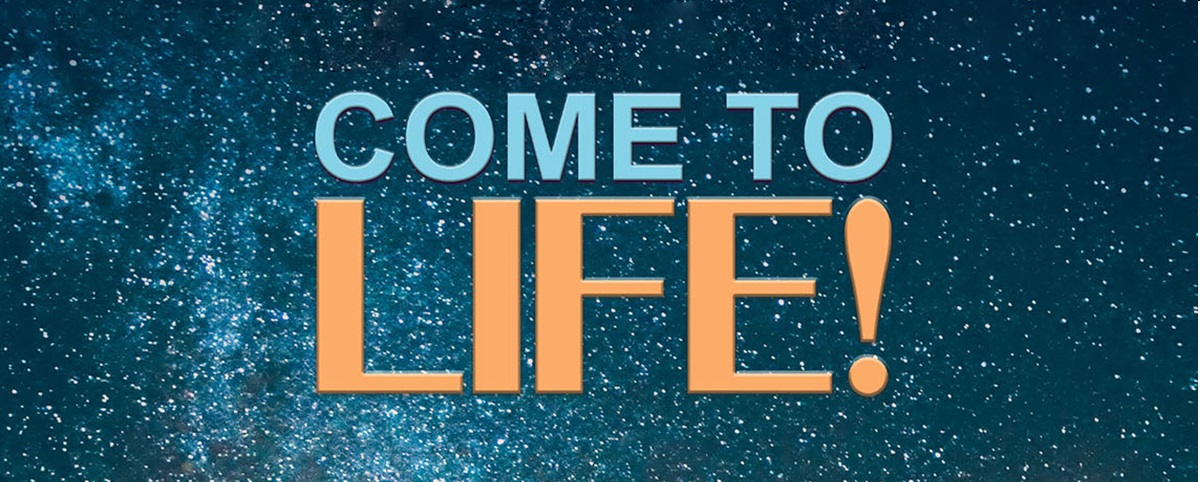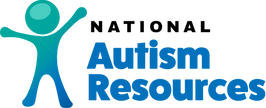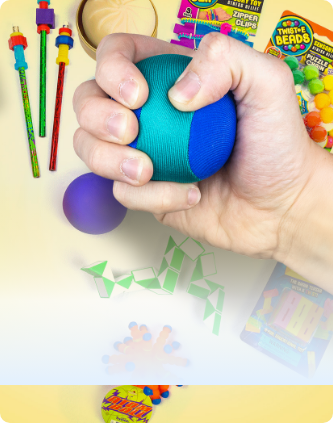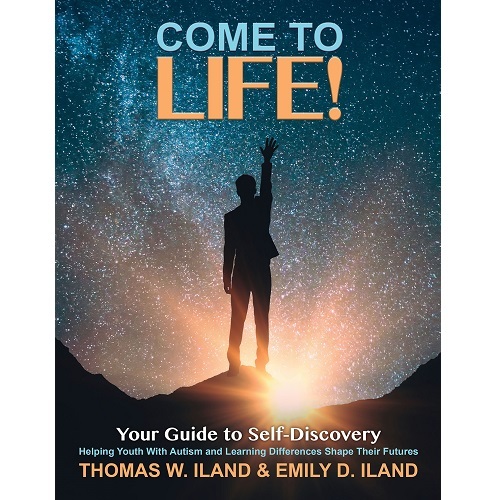Promote Your Child's Independence Starting Today
Posted by Emily Iland, M.A on Apr 10th 2019

It's never too early or too late to prepare your child for life! The school years come to an end, but adulthood lasts for decades! The sooner you teach your child to do things for himself or herself, the better. Major “life domains” that we all attend to daily include taking care of ourselves and the place we live, finances, work/education, transportation, social life and recreation! You can make a plan to help your child (of any age) practice the independent living skills that everyone needs, polishing them to the best of their ability.
New research shows that teaching independent living skills can give your son or daughter an edge in life.1 While many people would guess that cognitive ability, language skills or educational achievement would be the factor linked to good adult outcomes, emerging evidence shows that independent living skills (ILS) can be the predictor of success in adult life.Therefore, teaching ILS needs to be a priority for everyone, across the spectrum.
ILS for AllIndependent living skills are usually taught in schools only to students who are not going to get a diploma. These key skill sets are not usually included in the school program for those on the diploma track! This neglect can have very negative effects, as we know from the heartbreaking stories of people who face failure as adults, in spite of their gifts and abilities, because they were not taught the independent living skills they needed for work, college or community life. You can make sure that ILS is part of your child’s transition plan, diploma track or not (special education law backs you on that).
You can also integrate naturalistic teaching into your normal routine, inviting your child to actively participate in the ordinary activities of daily life. Of course it can be more challenging to teach independent living skills to someone with Autism Spectrum Disorder (ASD, or with other exceptional learning needs), but it’s worth the effort! Individuals on the spectrum are likely to need explicit instruction, with tasks broken down step-by-step. They may need more time and more practice. Tools like visual supports, video modeling, or phone/tablet apps might be central to teaching. That’s great, go for whatever works for your child, teen or adult!
ILS Empowers. You know from your own experience that it’s empowering to learn to do something for yourself. Think about how great it felt the first time you drove a car, cooked a great meal, or balanced a checkbook on your own. The same thing applies to our children, of any age. They feel good about themselves when they’re successful with a task. Being more independent, even in small ways, can help with confidence and self-esteem.
I have a motto, “If you do something for a child that they can do for themselves, you disempower that child.” I realized this when I watched a dad pour cereal for his 16-year-old daughter, who was perfectly capable of pouring her own cereal. The dad may have thought he was just being nice, of course, but it’s important to realize that this kind of adult behavior can cause “learned helplessness.” This phrase means that the child, teen or adult believes they can’t do things for themselves because others are always doing for them. Learned helplessness can negatively affect confidence, self-esteem and progress.
Not only can our children learn to do things for themselves, they can learn to help others. Helping is a friendly thing to do, and can have a positive social impact. For example, I taught my son Tom, who has ASD, to pack his own school lunch when he was in fifth grade. Since he was already making his sandwich, I asked if he would also make one for his brother and sister, which he did. Danny and Lisa thought he was a kind and thoughtful brother! People of all abilities can contribute to the household to the benefit of all, whether it’s clearing everyone’s plate to the sink after dinner, or sorting laundry into whites and colors.
ILSand Self-Discovery. As your read this, are you making the connection between life skills and future jobs? Learning skills at home helps your child discover which chores they actually enjoy doing. This may be a great introduction to possible work or career options. Consider the match to job opportunities ranging from the service field (such as restaurants, hotels etc.) to animal care, to retail, to accounting, you get the idea!
Learning life skills is an opportunity for self-discovery. This means that your child (and you) can learn more about their likes, dislikes, interests, skills, abilities, and need for support. This information can be very valuable for future planning, helping to shape a more authentic vision for life, leverage the person’s strengths, and contribute to their success!
Want to learn more?Taking decades of life experience into account, my son Tom and I wrote a practical, hands-on book called Come to Life! Your Guide to Self-Discovery. Come to Life! is designed so that parents, teachers and other “allies” can help individuals on the spectrum discover what they want and need in life, and then work to get it. Come to Life! is the ideal prequel to transition or life planning for those age 12 through adult. We hope you’ll find the book a useful tool for exploring ILS and many other topics in the book!
1(Research by Dr. Laura Klinger at the University of North Carolina, Chapel Hill, for example).
-----//
Emily Iland, M.A. is an award-winning author, researcher, film-maker, advocate and leader in the autism field. As is the mother of a young man with ASD she brings personal experience and insight to her professional roles. Emily is an Adjunct Professor at California State University, Northridge, and an engaging professional speaker, presenting a variety of topics in English and Spanish in the US and abroad. www.EmilyILAND.com email emily@BeSafeTheMovie.com, phone 661-347-8557
Tom Iland, B.S., DTM is a professional speaker and trainer inspiring audiences across the country.www.ThomasILAND.com email tom@ThomasILAND.com phone 661-313-3323
Dr. Barry Prizant wrote an excellent review of our award-winning new book Come to Life! Your Guide to Self-DiscoveryCome to Life! is an incredibly engaging, optimistic and forward looking work, based on the wisdom of Tom Iland, a respected and wise autistic self-advocate, and Emily Iland, his mother and a seasoned professional in the field of autism. Infused with Tom's personal life experiences, it provides a vast array of self-discovery activities and resources designed to increase each child or adult's self-awareness, confidence, self-acceptance and understanding of one's autism as an essential foundation of one's identity. It is a cutting-edge work that is designed to help an individual explore the gifts autism may bring, as well as effective strategies to address its inherent challenges. I highly recommend this book for parents, professionals, and most of all, for autistic people. Barry M. Prizant, Ph.D., CCC-SLPAuthor of "Uniquely Human: A Different Way of Seeing Autism"








